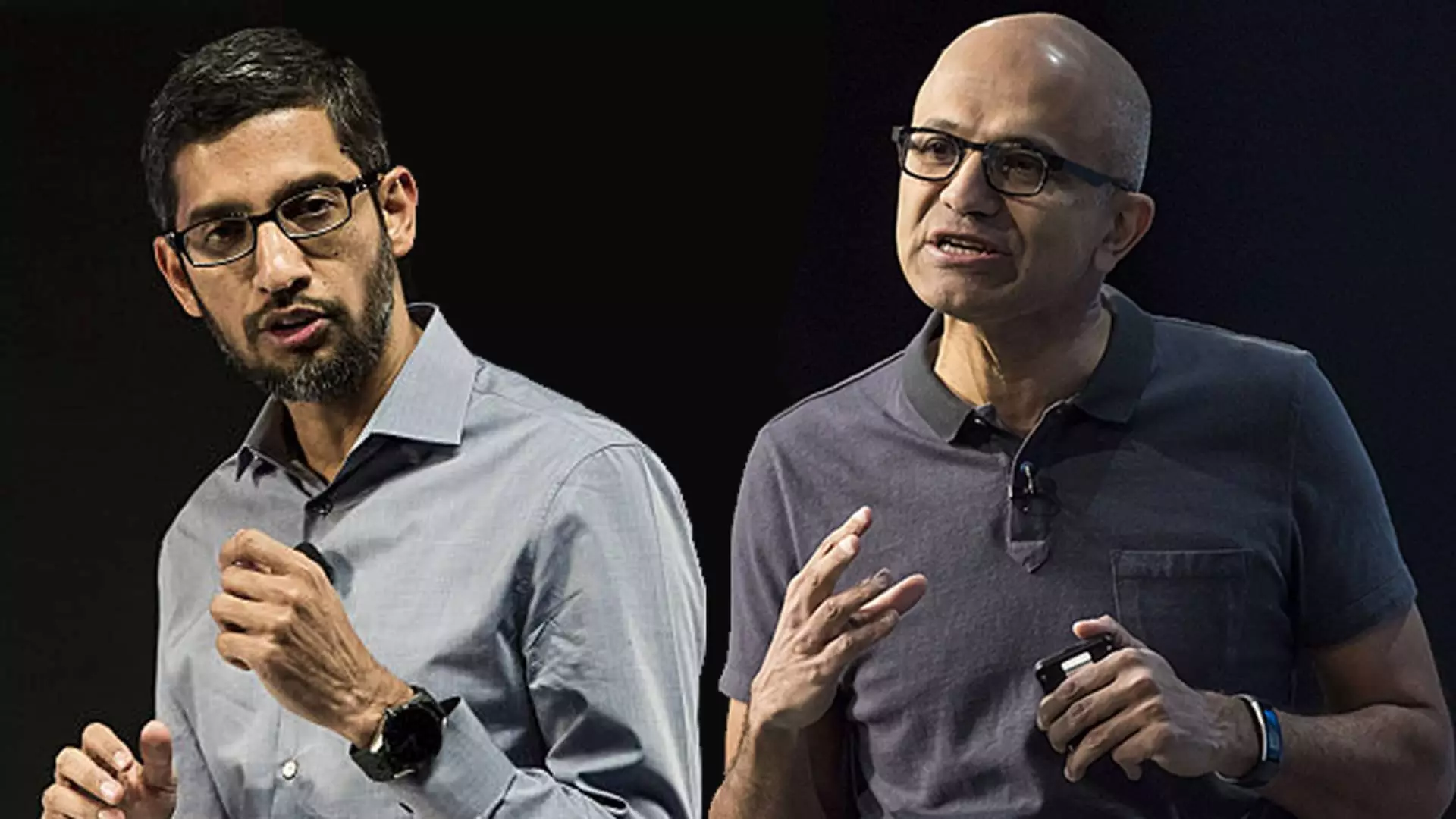The ongoing rivalry between tech giants Microsoft and Google has taken a new turn, with public allegations emerging that Google is allegedly engaged in covert campaigns aimed at undermining Microsoft’s standing with regulators in Europe. The accusations were made in a blog post by Microsoft attorney Rima Alaily, in which she claimed that Google has employed tactics involving astroturfing—creating a facade of grassroots support to sway public opinion and regulatory decisions.
In her statement, Alaily contends that Google has orchestrated a concerted effort to discredit Microsoft by founding the so-called Open Cloud Coalition, allegedly funded and recognized only as a front for Google’s interests. According to Microsoft’s assertion, the coalition, purportedly comprising various European cloud providers, has been designed not to foster collaboration but to launch attacks against Microsoft’s cloud services and business practices. Alaily emphasized that there is a lack of transparency regarding Google’s financial involvement and oversight over this newly formed group, raising the question of authenticity in its mission to advocate for an open cloud industry.
What stands out in this conflict is the strategic use of language and framing by both parties. Microsoft’s characterizations imply a deceptive manipulation of stakeholders, akin to playing a puppeteer behind the curtain. This echoes a broader theme in the tech industry: where the stakes are so high, perceptions can often matter as much, if not more, than reality itself.
The conflict coincides with heightened regulatory scrutiny of Google, particularly in Europe, where the company is facing its second antitrust trial in the U.S. This legal backdrop sets the stage for the accusations leveled by Microsoft against Google. Alaily argues that the perceived necessity of Google to mobilize European players against Microsoft reflects a palpable fear of competition, signaling that Google’s dominance in online advertising and cloud infrastructure is under threat.
Additionally, Alaily pointed out that companies within the alleged coalition, when approached by Microsoft, expressed reservations about participating in what they deemed a smear campaign against a competitor. This revelation speaks volumes about the shifting alliances in the tech landscape, where companies are reevaluating their affiliations amidst an environment fraught with competitive tensions.
In the ongoing drama, Google’s response to Microsoft’s allegations has been equally pointed. A Google cloud spokesperson dismissed Microsoft’s claims as unfounded, insisting that their criticism of Microsoft’s practices was not only legitimate but also widely echoed across the industry. They claimed that Microsoft’s standard operating procedure creates significant barriers for customers, compromising their ability to choose freely and innovate.
This exchange illustrates how both companies are adept at leveraging public relations to their advantage. Google’s rebuttals suggest that they perceive an opportunity to rally support around their narrative of promoting fair competition, while simultaneously painting Microsoft as the architect of restrictive practices.
The tension is compounded by underlying financial realities. Microsoft has claimed that businesses can save significantly when they utilize Windows Server on Microsoft’s cloud platform compared to its rival, Amazon Web Services (AWS), which currently holds the leading position in cloud infrastructure. This assertion forms a pivotal part of Microsoft’s value proposition and could serve as a cornerstone for their defense against Google’s allegations.
Moreover, the timeline of events, including Google’s previous initiative—the Coalition for Fair Software Licensing—shows a sustained effort to scrutinize Microsoft’s operations. Alaily pointed to an alleged offer from Google of $500 million to sway members of another coalition against Microsoft, indicative of the lengths to which companies may go to fortify their market positions, albeit in ethically murky ways.
As this high-stakes drama continues to unfold, the implications for the future of cloud services, antitrust legislation, and industry competition are profound. The public accusations announced by Microsoft highlight a growing trend where corporate narratives shape market dynamics and regulatory outcomes. Both Microsoft and Google seem locked in an unending contest for supremacy in the cloud arena—an environment where the interplay of technology, regulation, and public perception will ultimately determine the victors.
This battle is emblematic of a wider struggle within the tech sector, wherein companies are not just contending for market share, but are also actively curating the public perception of one another to gain the upper hand in an increasingly scrutinized and polarized market landscape.


Leave a Reply